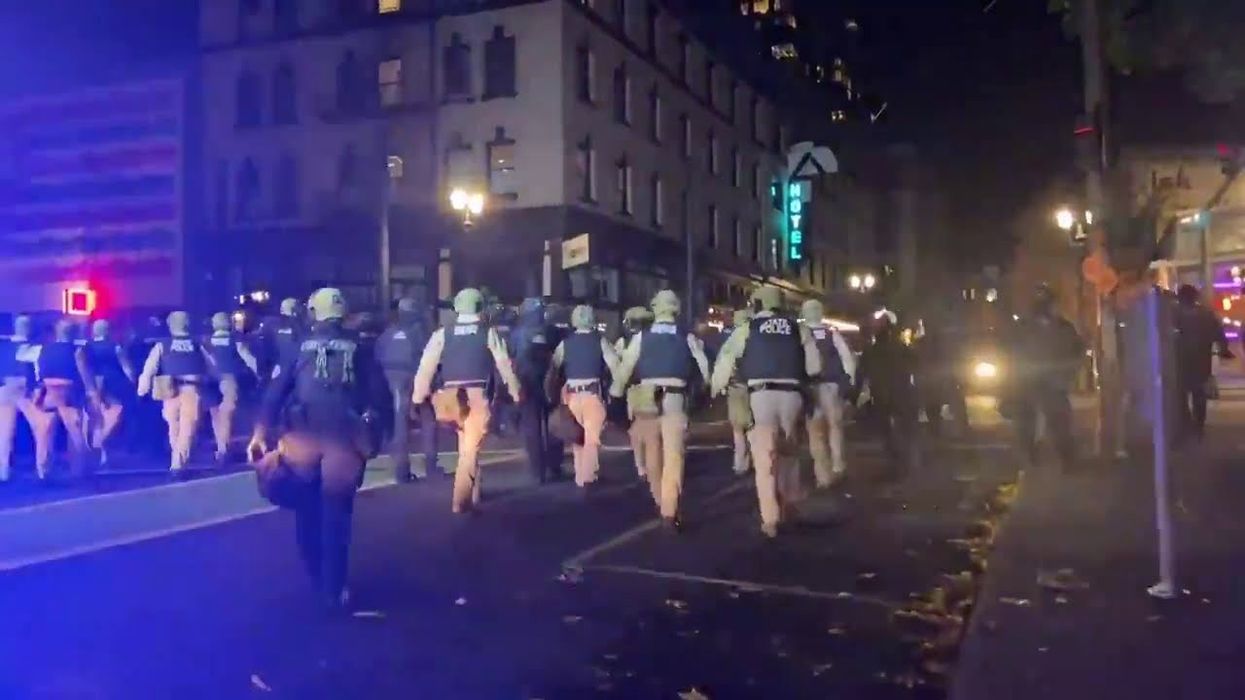In the months leading up to Election Day, civil society organizations carried out an extraordinary effort to make sure people across the country knew what to expect. That laid the groundwork for the core messages that have dominated in recent days: Every vote needs to be counted; the system is not broken just because it is taking longer to determine the winner; and election officials are in charge and will get the job done.
News organizations have amplified these messages. They have impressively stepped up to the challenge of covering this complicated, highly contentious election. The result has been much more calm during an uncertain post-election period than might have been expected. A development that many feared could trigger chaos — President Trump unilaterally declaring victory — has been a bit like the proverbial barking dog ignored by the passing truck.
Then on Wednesday night, Trump's empty claim of victory had an impact on real life. Demonstrators in Portland, Ore., protesting Trump's actions smashed the windows of a hotel, a church and other buildings. News reports indicate that organizations on the left have planned protests in over a hundred cities in the coming days to "protect the vote count" and oppose the president.
Several groups began planning this mobilization many weeks before the election. A narrative guiding this planning is that the U.S. can learn from developing countries where "people power" in the streets played a critical role in preventing autocrats from stealing legitimate elections.
Protesting organizations are probably not wrong to assume that Trump will stop at nothing to win. But there's a lot less that he can do here than in the autocracies that are often invoked. In the country that launched the "people power" model, the Philippines, Ferdinand Marcos deployed the military to take control from election administrators until a massive mobilization of protestors persuaded the military to disobey the regime's orders.
In our decentralized system it is state governors, not the president, who control forces like the National Guard. Local police protect election infrastructure. The force that Trump can deploy is lawsuits. Though some protestors are seeing these cases as evidence our system is under threat, in fact they illustrate our democracy is working as it should.
One "coup" scenario protestors are girding for is a state legislature illegally naming a separate slate of electors contrary to the election result. If that happens, it should indeed be met with massive protests. But until such a step appears possible, street protests by organizations on the left may do more harm than good. Protests run the risk of counter protests and violence , and any violence, regardless of who starts it, could discredit the election for a good share of the public.
It may not be as dramatic as taking to the street, but another kind of people power is happening all across the country right now. The votes of the people are being accurately counted by servants of the people, our election administrators. For now, that power is more than enough.
Kevin Johnson is founder and executive director of Election Reformers Network. Read more from The Fulcrum's Election Dissection blog or see our full list of contributors.




















